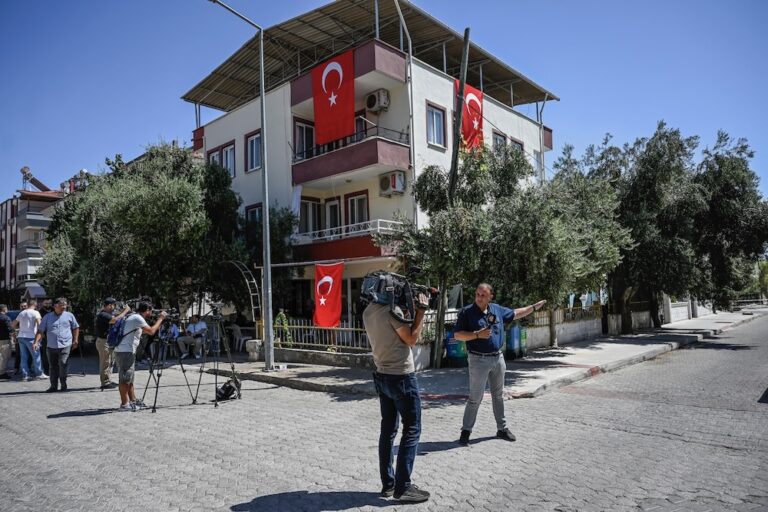(WiPC/IFEX) – The storming of twenty prisons by Turkish security police on 19 December 2000 has reportedly led to the deaths of up to twenty prisoners and two policemen. Many more have been injured. The police operation was aimed at ending a hunger strike being staged by some 200 prisoners, who are protesting their imminent […]
(WiPC/IFEX) – The storming of twenty prisons by Turkish security police on 19 December 2000 has reportedly led to the deaths of up to twenty prisoners and two policemen. Many more have been injured. The police operation was aimed at ending a hunger strike being staged by some 200 prisoners, who are protesting their imminent transfer to smaller prison cells. The Justice Ministry reports suggest that fifteen of the prisoners died after setting themselves on fire. Over 1,000 prisoners are said to have taken part in protests against their imminent transfer from dormitories to small “F-type cells”. The authorities claim that the transfer is essential to break up the influence of organised gangs, Kurdish separatists and Islamic groups in the prisons. The protestors fear that the small cells will make them vulnerable to abuse by prison officers.
One of the most prominent political prisoners in Turkey is Esber Yagmurdereli, a playwright and lawyer who has been detained since June 1998. Held in Çankiri Prison, one of those stormed by the police, there are unconfirmed reports suggesting that he had joined the hunger-strikers a few days ago. In a statement on 19 December, the Çankiri Public Prosecutor Ertem Türker stated that “As a result of the operation, we have transferred a total of 68 prisoners, including those whom we refer to as ‘abscesses’ and who continuously cause problems” to an F-type prison. He however reassured journalists that Yagmurdereli had been “protected as much as possible during the operation,” adding that he would not be transferred to another prison.
The police operation follows last week’s new amnesty law providing provisional prisoner releases, which was described by Amnesty International as “woefully inadequate.” Although it will allow for the release of thousands of prisoners, it excludes many prisoners held only for the peaceful expression of their views or non-violent political activities. It does, however, allow for the release of security officers convicted of torture and ill-treatment.
PEN was particularly disappointed that Yagmurdereli will not benefit from the new law. Just a few days before the prison crisis, Sanar Yurdatapan, a composer and human rights activist who has been staging a long-term campaign against suppression of free expression, entered prison himself, to serve a two-month sentence for producing “Freedom of Expression 38”, a collection of writings by dissident writers, intellectuals and union activists. Detained with him was Nevzat Onaran, chairman of the Contemporary Journalists Association, who was also given a two-month sentence. Both are thought to be held in Kartal Prison, which was not subject to police action.
These events follows last week’s European Union summit in Nice at which a statement was issued that Turkey’s accession to the European Union was dependent on an improvement in its human rights record.
Recommended Action
Send appeals to authorities:- expressing alarm at these recent events, and concern for the welfare of writers and journalists who are held in the prisons under attack
- calling for a full, impartial and public investigation into the killings and woundings that occurred, and that any officer thought to be involved be suspended pending investigation
- expressing disappointment that the new amnesty law excludes from its remit those detained for their non-violent political activities, most notably writer Yagmurdereli, composer Yurdatapan and journalist Onaran
Appeals To
Ahmet Necdet Sezer
President
Fax: +90 312 427 1330
Bulent Ecevit
Prime Minister
Fax: +90 312 417 5743
Hikmet Sami Turk
Justice Minister
Fax: +90 312 417 3854
Sadettin Tantan
Home Secretary
Fax: +90 312 418 1795
Please copy appeals to the source if possible.


